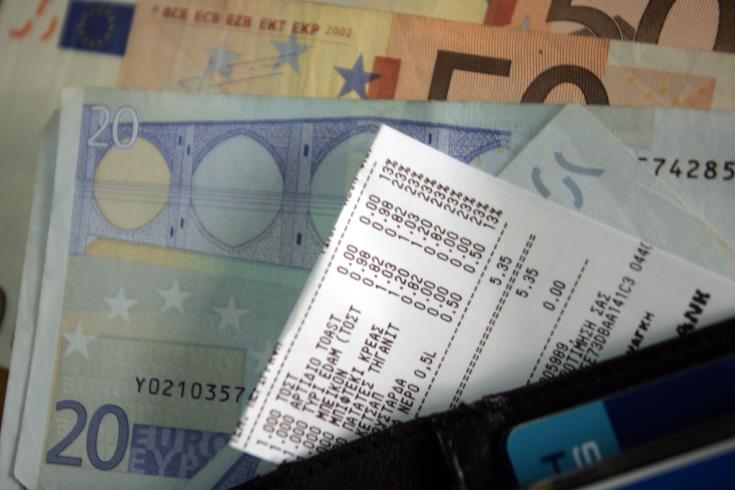Rising energy prices put more people under increased financial pressure and at greater risk of energy poverty.
This is according to the fifth round of the living, working and COVID-19 e-survey: Living in a new era of uncertainty – a report that presents an overview of responses from over 200,000 people across all five rounds of the e-survey, which took place from spring 2020-2022.
More people are struggling
The cost of living in the EU is rising at an unprecedented level, with an average inflation rate across the 27 EU Member States of nearly 8% in March, mostly caused by soaring energy prices.
And average inflation across the bloc has increased since March.
Evidence that the increasing cost of living is affecting people’s financial situation comes from the finding that around 53% of e-survey respondents reported that their household had difficulties making ends meet in spring 2022 – a considerable increase from the 45% reported in 2021 and 47% at the start of the COVID-19 pandemic.
Due to rising energy prices, respondents in all age categories are now under greater financial pressure than at any time during the pandemic.
Energy poverty looming
The latest round of the e-survey shows that it is more common for respondents to have problems paying bills. With 16% of people reporting being in arrears with their utility bills, energy poverty is a growing risk.
The extent to which energy poverty affects respondents varies greatly according to their country of residence.
The proportion of respondents reporting being behind with their utility bills ranges from 7% in Denmark and Sweden to 50% in Greece.
This issue is especially pronounced for the 53% of people who reported having difficulties making ends meet: on average, over a quarter (28%) of these households are in arrears with their utility bills.
Concerns for the future
Many people expressed concern about their ability to pay bills in the next three months.
Some 28% of all respondents expect payment problems, while 31% of households with a car anticipate having difficulties paying for the costs to keep it up and running.
For financially vulnerable households, energy poverty is an even higher risk: 45% of people who reported having difficulty making ends meet are worried they will not be able to pay their utility bills in the next three months.
This worry increases substantially among households already in arrears: on average, 74% of them express concern that they will not be able to pay their utility bills in the next three months.
Conclusion
The living, working, and COVID-19 e-survey highlights the heavy toll of the pandemic and sheds light on a new uncertain reality caused by the war in Ukraine, record-high inflation and sharp rises in the cost of living.
As a result, many financially vulnerable households are at risk of energy poverty.
While governments seek to alleviate the negative impacts of price increases on households and have introduced energy subsidies and VAT reductions for electricity, gas and fuel, subsidising energy use is only a short-term solution.
Instead, shifting the focus from energy subsidies to reducing energy dependence could help address the unaffordability of energy in harmony with the EU’s climate policy and geopolitical interests.
Cyprus
The spectre of energy poverty looms large for many Cypriot families, as economists estimate that one in four households are at risk, even the traditionally safe middle class.
With electricity bills inflated every couple of months and fuel prices hitting an all-time high, many families are in trouble, trying to keep tabs on every last euro.
Electricity prices in Cyprus have never been higher.
Households have to pay at the end of this month a staggering 28.86 c€/kWh, the highest it has ever been, an increase of 111% from July 2021 (13.67 c€/kWh) and an increase of 190% from July 2020 (9.94 c€/kWh).
Fuel prices have also risen by a whopping 50% since the beginning of the year, with Diesel breaking the €2 barrier in early July, while unleaded 95 is close to €1.90.
In comments to the Financial Mirror, economist and advisor to presidential candidate Andreas Mavroyiannis, Panos Loizou Parras said a quarter of households could fall into energy poverty.
Parras argued that although there is an absence of official data on energy poverty in Cyprus, European statistics indicate how dire the situation is.
“According to Eurostat data, one in five people in Cyprus said they could not keep their home adequately warm in 2020.
“In the survey, Cyprus ranked third to last as 21% of residents said they could not afford to heat their homes.”
He said that with fuel prices and electricity shooting through the roof, “there is no way these people could keep their heads above the energy poverty line”.
Eurostat said that 21% or 180,000 households could not afford to pay for heating, while the EU average was 8%.
Meanwhile, the electricity bills sent out for July and August will be about 24% more expensive than the last one.









